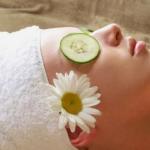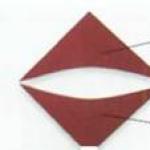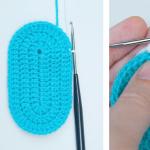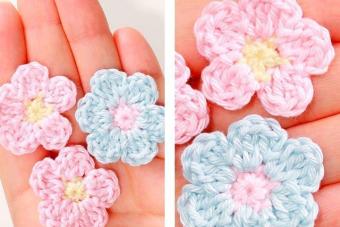Greetings, dear readers.
Today I will tell you about my impressions of dyeing with henna, because during all this time I have not only dyed them with henna, but also lightened it, dyed it with henna again and dyed it on top, and so on.
And this cycle of coloring did not stop me from growing my hair and did not prevent me from achieving my dream hair, 90 cm long.
Now I only dye my roots with henna, and the length of my hair is bleached with henna. And one of the reasons for the lightening is a significant drawback of henna, which I will talk about later.
But let's start with the good.
How did I even come to henna?
It's time to remember Harry Potter. How does a wizard choose his wand? No way, it’s the wand that chooses the wizard.

That's how henna itself chose me.
It all started a long time ago and this story is from childhood. Mom accidentally confused colorless henna with colored henna (she made anti-dandruff masks for me with it) and dyed my hair. And I liked it, and no one stopped her from continuing to wear makeup. So, for most of my school years I dyed my hair with henna until it was time to experiment.
I dyed my hair with henna because I like the color it gave and since it is a natural dye, no one forbade me to dye it, so for me henna was the ideal option.
Later, color experiments began, when I was in search of my color and constantly wanted to be lighter, then darker and then dyed my hair with dye, then did a bunch of washes and dyed it again.
This cycle was always combined with henna dyeing and in the end I always returned to it for one big reason - its color suits me.
But henna never gave me the same color.
- What happens after dyeing with henna depends on the type of henna used and the original hair color.
- So, depending on what base I dyed my hair on (and it was both bleached hair, simply dyed with red-red dyes, and dark colors), the shade always turned out different and I liked it. But most of all I loved it for its durability, which is difficult to achieve with paint in fiery shades.
Reasons why I dye my hair with henna:
- Indescribable shade brightness and durability
Dye tends to wash off. Red shades (if they do not have a clear admixture of pink pigment) always wash out to red. I always used this when I wanted to get a red tint from paint.

I first dyed my hair red to get red and enjoy the color longer. However, whether red or red, they always wash out very quickly and turn into a shabby something and require timely tinting. Overall, maintaining bright fiery shades is no easier than maintaining beautiful shades of blonde.
Well, plus, needless to say, more nourishing masks, as well as oils, significantly increase color washout?
Henna can fade and wash off only at the beginning of coloring, when the pigment has not yet accumulated enough in the hair.

*The previous photos show pre-bleached hair that has been dyed. After the red color completely faded, I painted them over with henna. Photo after 1 henna dyeing.
However, even after a single dyeing, the brightness and depth of color from henna does not disappear for me, even with regular use oil masks. At most, I need 2-3 colorings for the shade to stop washing out of my hair altogether.
The durability of henna is 1000 times higher. And it affects the brightness and depth of color.
Using henna greatly simplifies care, minimizing the time that you have to spend with paint on maintaining the color.
- Shine

Dye It shines only the first time after coloring.
Henna it gives unsurpassed smoothness to the hair (the effect accumulates as you color it) and a dazzling shine to the hair akin to the effect salon procedures. Here the paint loses significantly.
Dye is not able to protect hair in any way, simply because it is a dye and its principle of action is coloring.
Henna not only dyes the hair, but also changes the structure of the hair.
I noticed the hair protection factor only in the contrast of lightening.
First, I dyed my worst hair with henna (it became like this because I was lightened with a violation of technology). I was able to restore hair that was crumbling in my hands. And only now I understand that henna helped me in many ways here.

*Bleached hair dyed with henna/Bleached hair after the henna has darkened.
Even in this photo you can see the difference in the quality of the hair. Where henna is bleached, the hair is no longer as shiny.
- I realized this only now. Why?
The lightened part is the same dead hair that I was able to restore and painted over with henna again. They were again subject to discoloration, but did not fall off. By caring for them, I keep them in as good condition as possible with them.
And now I see the difference in the quality of my hair before and after bleaching.
When I restored damaged hair and painted over bleached ones with henna, it was much easier with them. Henna made them thicker and, as a result, stronger. They combed several times less, were more elastic and hardy. I treated them with the utmost care, but there was no need to “shake” over them.
Newly bleached hair lacks this protective armor of henna. They are very thin - like cobwebs, so they get tangled easily. They don’t have the same strength and elasticity that they have with henna.
Of course, this could be attributed to everything that happened to them. That is, another lightening that made them look like this, but what could I expect?
But this is exactly what bothered me. Do you understand whether it’s the lightening or the protective properties of henna?
So I dyed the bleached part of my hair with henna.
And again I felt the effect that I had been missing.
Henna gave smoothness, shine and made the colored hair strand thicker and stronger, and the hair in it became less tangled. For me, this is a big indicator towards not just the coloring properties of henna, but also towards the protective ones.
I feel that hair dyed with henna has a “protective shell”; hair without henna lacks it.
Why don't I re-color the entire lightened part with henna in this case?
But here we come to one big drawback that can cover all the advantages of henna.
And this is her ability to go dark.
As pigment accumulates, henna becomes darker and for lovers of light and bright shades this is a problem.
Therefore, now I will clearly demonstrate to you the difference in the shade of bleached hair.

And that strand that I dyed with henna again.
It’s too dark for me, so despite all the advantages of henna, I won’t dye all my hair with it, otherwise after the nth amount of time I’ll decide to lighten everything again. ...We swam, we know...
- Therefore, you need to be careful with henna. Achieve the desired shade and stop dyeing the length of your hair, otherwise the color will darken and there is no other way than through lightening/dyeing with paint to make it lighter.
- However, for lovers of deep dark colors with interesting tints of shades, it is this moment of darkening henna that is an undoubted advantage.

Here with paint everything is much simpler. You always know what shade you will get and, regardless of the number of dyes, the color will not begin to darken if you use the same shade.
- Harm
With reasonable painting on low oxides, the harm from the paint is minimal.
Henna should not be used to dye hair that is damaged and dried out, otherwise it can dry it out even more. With reasonable coloring, henna is, of course, beneficial.
- Care
Therefore, if you do not take care of hair that is dyed with dye or henna, both of them will equally not look very good.
Many people believe that henna heals hair and therefore simply dyeing your hair with it is enough to get the “wow” effect, but this is not so. The above-described properties, including shine, thickening and smoothness, will be fully manifested only in case of good hair care, otherwise the result may be the opposite.
- Ability to change color
After paint Hair color can be changed easily and without consequences.
After henna too. I've dyed dye over henna, henna over dye, henna over bleached hair, bleached henna, and I've never had any problems with changing colors. The greenery that scares everyone comes from basma or the crooked hands of a master, but not from henna.

And after henna you can go blonde. The only thing is that it’s not ashen, it’s warm blonde.
Therefore, in my case, dyeing with henna does not limit my flexibility with hair color at all.
- Price
Henna dyeing from $1 to $5 (depending on the brand of henna used).
Based on the points described, henna coloring wins for me in many ways, allowing you to get a wide variety of shades at minimal cost and maximum benefits, which cannot always be said about paint.
I will also provide a comparison table to clearly show you all the pros and cons of henna and dye that I have identified for myself.
- Henna dyeing is a popular way to not only change the shade of your hair, but also “strengthen” it. Henna, as it were, gives us the answer to two questions at once - it both “colors” and “heals”.
- But why do hairdressers refuse henna? Why isn't henna used in beauty salons? Let's see how henna actually “colors” and “treats” hair.
- I can give seven reasons why you should give up henna.
- The principle of henna dyeing is the accumulation of pigment in the upper layers of the hair - the cuticle. Due to the tannins contained in henna, the hair becomes denser and stiffer - this is what gives the effect of thickness. . But as a result hairget heavier and start to fall out.
- The exposure time is too long for a salon service, and staining result practically unpredictable. The maximum that henna can do is give hair more warm tone(red on dark hair, copper for brown-haired and dark blondes).
- Henna does not cover gray hair. Gray hair become bright carrot-colored, the rest of the hair practically does not change color. It looks extremely unaesthetic.
- Hair dyed with henna many times loses its elasticity and becomes stiffer. Because of this, they not only difficult to install, but they also don’t hold it well. This kind of hair is difficult to manage, it is difficult to add volume or get curls for a long time.
- Resulting Color hair after dyeing with henna almost impossible to change. You won't be able to make your hair lighter without bleaching. By bleaching, you will get best case scenario light copper color. At worst - green. By the way, never use henna on bleached hair - the green color is guaranteed.
- Even if you managed to lighten the color and somehow neutralize the copper tint, the result cannot be consolidated. The dyes won't be able to hold on in the hair. There will be no durability even if you decide to go darker: henna will not allow the artificial pigment to remain in your hair.
- Once you use henna, you will not get rid of it until you cut off all the hair on which it was. Henna does not wash out of hair. Never.
In defense of henna, we can say that it still gives a good shade on dark hair. Noble wine for brunettes and natural copper for brown-haired women. But already on medium-brown and lighter hair the color is rustic. Henna does not strengthen, does not thicken, does not cover gray hair, complicates styling, does not allow changes and never never does not wash off. Do you really still dye your hair with henna?
Logging In...
Last reply was April 13, 2017
I studied all the comments. I came to the conclusion that I should try Ot henna, I just need to find a quality one somewhere... Tell me where to buy it!
I found the following information about henna: “Nothing good will happen if you apply henna to previously colored or highlighted hair. Vegetable and chemical dyes do not mix with each other. As a result, hair can acquire the most unexpected shade, even green.” Is this true? I wanted to try dyeing my hair with henna, but now I doubt whether it’s worth it, because... Now I'm wearing Loreal Preference, shade Intense Copper.
Thank you! useful comment!
I'm just looking for an alternative to chemicals. permanent dyes because gray hair appeared.
PLEASE GIVE YOUR CONTACTS:) I WANT TO BE YOUR CLIENT.
I am a brunette, thin hair, length to the shoulder blades. Previously, I was dyed with IRIDA tinted shampoo and also dyed with LAZARTIQUE permanent alkaline paint, but recently I read that alkaline paints are equally harmful as ammonia paints. Yes, and the result after LAZARTIQUE was not pleasing, except for the very first coloring, then the color was just right and the hair was denser, as the manufacturer promised, but this dye does not cover gray hair, but only covers it, like IRIDA, in a reddish tint, and subsequent paintings were not pleasing, because... the color turned out to be very dark, but shiny, and the last time I dyed it was 1 week ago, I was afraid of getting darker and didn’t let it sit, so the color didn’t show up at all: (neither color nor shine, only the gray hair has a reddish tint. By the way, I considered painting with organic paints, but I realized that instead of ammonia there is a natural substitute, which is quite dangerous, because it is stable and acts all the time while the mass is on the head, unlike ammonia, which is volatile (it opened its scales and evaporated), so many girls on the forums complain that they painted with organics for a year and were delighted, but now after the next dyeing the hair fell off (probably the master overstayed his welcome), and the meaning of this organic chemical is the same as that of chemistry (opened the scales, then the oxide or whatever peroxide washes your pigment out of the hair)
In general, I've read a lot of things.
Well, you still write how to find you, I don’t want to experiment, it’s better to deal with a professional right away :)
This is my 4th attempt to add a more intense color to my dark (almost black) hair and cover up my gray hair.
The result is zero.
Everything was done strictly according to the instructions. poured boiling black tea (3 bags per 300 ml.) over it. I applied it carefully, put on a plastic hat, a warm hat, and walked like this for 5 hours.
AND? The gray ones still shine, but there is still no black color. That is, no way at all!
Well, I don’t want to paint again with pure chemicals. But you need to apply makeup quite often, once every 2 months.
Maybe I'm one of those people who doesn't take paint well? I have to leave any other chemical paint on for about an hour. Otherwise nothing will be visible at all. I tried a lot of simple dyes (not professional ones), and the only dye that worked on my hair was from Schwarzkopf (Life Color XHL). True, I also walked with it twice as long as necessary, and every time I washed my hair, it flowed from me in black streams.
I still have a question about henna or basma (in our country all natural dyes are called henna). Maybe I shouldn’t suffer any longer and just give up? or is there a chance??
Some people write on the net that the dye doesn’t pick up the hair the first time and they need to dye it a second time. (They probably mean after a very short period of time.)
Girls, please, anyone who has extensive experience with henna, please advise? Thank you!
What's happened henna and what beneficial properties It has, as well as my personal, proven method of brewing henna, which does not dry out the hair.
The first time I dyed my hair with henna was when I was about 18. And no, then I didn’t think about my health yet, just as a simple student - it was much cheaper than ordinary chemical dyes.
My natural color hair, this is probably what is called mouse hair. Dark brown and somehow lifeless.
I've always really liked and am still crazy about red hair. There is something mystical about him that has always attracted me. Nature didn’t gift me with red hair, so I decided to take everything into my own hands.
I’ve been a redhead for over 13 years now. The shades changed - from a very light, reddish blond to a dark, reddish shade. For myself, I already know that red is my color, it’s how I feel from the inside.
I used to always use a recipe where henna was simply mixed with water. I applied it for a couple of hours, washed it off with shampoo and that was it!
About 5 years ago I read on one of the forums about natural beauty that the color will be deeper and brighter if henna is mixed with some acidic medium - such as vinegar, lemon or orange juice.
The color was indeed brighter, but the problem was that the henna dried out my hair very much, as a result of which it began to split.
About a year ago I met a girl from India who had gorgeous black hair with reddish highlights. Honestly, all Indian girls have very beautiful, super thick hair.
We got to talking, where I said that henna is a constant friend of my hair, and I really like the result, but it dries my hair very much. To which she told me that henna itself will dry, and even with lemon juice.
So she shared with me her recipe, which does not dry out the hair, gives it a reddish color, nourishes, gives volume and thickens the hair. I still use this recipe to this day.
Henna no longer dries out my hair, but makes it voluminous, strong, shiny and healthy. I couldn't be happier!
The photo for this post shows how my hair looks before and after henna. And if the color has not changed much (probably, after so many years of use, henna has become firmly ingrained into my hair), then changes in the structure and smoothness of the hair are visible to the naked eye.
What is henna?
It is a greenish powder obtained by grinding the leaves of the Lawsonia inermis shrub. The leaves of this shrub contain a dye element - Lawsone, due to which henna dyes not only the hair, but also the skin in a red-orange color.
Cultivated in the warm tropical climates of northern Africa and northern and western Asia.
Humanity began using henna several thousand years ago. Some scientists claim that even Cleopatra and Nefertiti used it to maintain the beauty of their hair.
Why is henna better than regular hair dye?
I understand perfectly well that not everyone, like me, is in love with red hair color. But now there are many different types henna mixed with a variety of herbs that will help achieve a variety of hair shades, of course, depending on the natural, original hair color.
It is important to understand that henna cannot lighten hair, since this requires bleaching the hair pigment.
- closes the hair cuticle, attaching to the hair protein and does not penetrate the hair cuticle, but envelops it, while regular dye penetrates the hair shaft.
- it is absolutely natural and if you choose high-quality henna, it does not contain chemical components that can be absorbed into the blood when applied to the scalp.
- is safe and does not cause allergic reactions, unlike paints.
- Gives incomparable shine, smoothness and strength to your hair, making each individual hair shaft noticeably thicker. Hair looks thicker and more voluminous.
- has an antifungal effect and can be used to combat dandruff, unlike chemical dyes, which can provoke this very dandruff.
Henna in Indian style
And who, if not they, should know everything about henna, using it in their culture not only for hair coloring, but also for Mehendi (the traditional application of henna on the skin in the form of intricate patterns).
Here's how I prepare henna:
1. Henna, powder: amount depending on the length and thickness of the hair. For my thin, mid-back hair, it takes about 3/4 cup.
Note: henna is different. And not only the final result, but also your health depends on its quality. I was scared to learn that unscrupulous companies add heavy metals to henna. So choose quality over quantity.
2. A strong solution of black tea. I boil water in a small saucepan (I take 2 glasses just in case) and as soon as it boils, I add 4 tablespoons of black tea. And over low heat, stirring occasionally, I brew it.
Note: I am a big fan of turmeric (a very strong antioxidant and anti-inflammatory effect) and try to put it not only in my food and morning smoothie, but also in my henna. I even put it in a homemade coffee scrub once, but then I walked around covered in yellow spots Turmeric strengthens hair and prevents hair loss.
My henna also contains chili pepper, which dilates blood vessels and improves circulation, creating a feeling of warmth, which helps the color set even better.
I add spices (1 teaspoon each) along with tea and boil.
3. Then I dilute the henna with this tea solution to the consistency of full-fat yogurt. Cover and put in a warm place to infuse for 2 days.
Note: henna does not like metal, so do not use metal utensils for brewing it, only ceramics or glass. Stir it with a wooden or plastic spatula or spoon.
4. Before applying henna, I wash my hair, as it adheres better to clean hair. I apply henna to dry hair, but on wet hair it starts to run and creates a mess.
I always add a couple of spoons to my henna olive oil, Shea butter and argan oil and a couple of drops essential oils oregano and orange.
Note: You can add any oils you like. Oil is necessary not only to nourish the hair, but also to prevent dryness. Through trial and error, I already know that olive and shea butter work best for my hair.
I add orange essential oil just for the scent. And oregano - for its antifungal properties. It will help those who have problems with oily scalp or dandruff.
5. Mix the resulting mixture thoroughly with a wooden spatula. I apply it along the partings to the roots using a brush, after combing the hair well. And then with your hands along the entire length of the hair.
Note: henna stains the skin, so I advise you to wear rubber gloves if you don’t want to have yellow palms
6. After I finish applying the henna, I massage my scalp for a couple of minutes. Then I put my hair in a bun and put plastic bags on my head. As many as 2! And then I also wrap my head in a towel. Henna loves warmth!
I keep henna for 2 hours. I tried to do it at night before, but it was very difficult and uncomfortable to sleep.
7. I just wash off the henna first warm water. Then I apply conditioner and massage the scalp and hair itself. I wash it off. I apply the conditioner again, wait a couple of minutes and rinse until the water becomes clear. I do not recommend washing off henna with shampoo, this can lead to severe tangled hair and not such a bright color.
After this, I rinse my hair with vinegar, I already wrote about this method ,which not only adds shine, but also fixes the henna.
Note: Your hair will smell like henna for a couple of days. But this smell does not bother me at all.
Also, I try not to wash my hair after hennaing it for at least 3 days. So that the color does not wash away and lasts longer.
I use henna once every 3 months. I buy this natural one, without impurities.
It has the ability to accumulate in the hair and with each use the color of your hair will look deeper and more saturated.
Nature hasn't given me gorgeous hair and I can't boast thick hair, but henna gives my hair the thickness and volume it needs. Hair looks well-groomed, smooth and shiny.
Henna is a natural, time-tested hair care method that not only colors hair, but also takes care of it. appearance and health.
How do you dye your hair with henna? And how does your hair look after this?
* Important: Dear readers! All links to the iherb website contain my personal referral code. This means that if you follow this link and order from the iherb website or enter HPM730 when you order in a special field (referral code), you receive a 5% discount on your entire order, I receive a small commission for this (this has absolutely no effect on the price of your order).
Posted inTagged,
FOR
- Henna is the dried leaves of the lawsonia plant.
- Henna cares for hair, making it denser, shiny and elastic.
- Henna gives your hair a natural red tint, which is quite difficult to achieve when using chemical dyes.
- Henna restores the acid-base balance of the scalp, soothes it and relieves itching, which sometimes occurs when overusing styling products or chemical dyes.
- Henna does not contain even half a gram of ammonia, is completely non-toxic and hypoallergenic.
- Henna treats dandruff quickly and effectively.
- Henna forms a thin “glass” film on the surface of the hair, which “locks” all the beneficial ingredients and nutrients inside and protects the hair from external influences.
- Even if you leave henna on your hair, you won’t ruin it.
- Henna costs pennies.
- The shade obtained with henna is not washed out of the hair.
- Henna is easy to use.
AGAINST
- Hair dyed with henna cannot be dyed. Particles of henna become tightly packed into the hair scales, and the “glass” film, which we wrote about in paragraph 6 of the previous list, does not allow chemical dyes inside.
- Henna dries your hair. With regular use by owners fine hair split ends appear.
- Henna dyeing takes several hours and is quite a messy procedure.
There is no black, brown or bleaching henna. All these are additives that make the composition less natural. Natural henna gives only and exclusively red hair tone, looks like an olive-colored powder or briquette with a pronounced herbal smell.
Popular
Eyebrow dyeing with henna
In addition to hair, it is also common to dye eyebrows with henna. This procedure is not so bad - much better than eyebrow tattooing. So if you want to make your eyebrows brighter, try henna dyeing, which lasts about 6 weeks on the hairs, allows you to make them thicker and at the same time maintain a natural look.
How to apply henna correctly?
A few life hacks if you decide to dye your hair with henna: we are almost sure that you used henna incorrectly! So read on how to properly dye your hair with henna.
1. Calculate the quantity
If you have shoulder-length hair, you will need 500 grams of henna per coloring; if your hair is chin-length, 200 grams will be enough; if you have a boyish haircut, 100 grams will be enough.
2. Brew porridge
Take a ceramic container, milk and henna. If you have oily hair, replace the milk with water and drop it into it lemon juice. Dilute the henna with milk or water until you get the consistency of sour cream. Cover with a lid and leave for 10-12 hours.
3. Prepare your hair
Wash your hair and dry it thoroughly. Do not use conditioner - neither leave-in nor leave-in! The hair scales will become clogged, and henna will not perform its function. Henna should be applied to clean and dry hair, unlike chemical dyes that are applied to unwashed strands.
4. Spread it on!
Heat the infused henna in a water bath or in the microwave and start applying it to your hair from roots to ends. Think about how long cleaning will take later, or worry about the safety of the surrounding interiors in advance. Henna cannot be washed, washed, or peeled off.
5. Gray
When you've finished applying the product to your hair, put on a shower cap (or use cling film), wrap a towel over it and start cleaning! Joke. Just do something for the next four hours.
6. Rinse
Wash the henna out of your hair thoroughly. It will be easier for you if, after washing off the bulk of the henna, apply conditioner to your hair and comb the henna out with a comb.
7. Let the paint “settle”
The hair scales will gradually close over three days. During this time, try not to wash your hair, dry it with a hairdryer, or apply active medications. Henna dyeing is ready!





